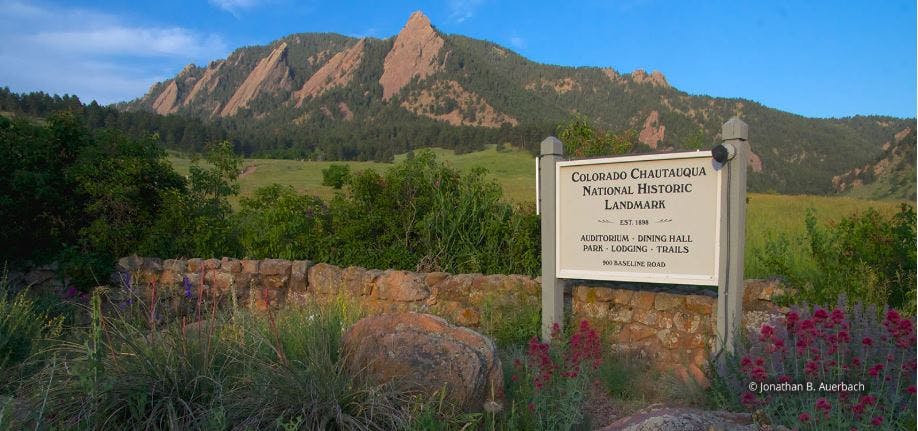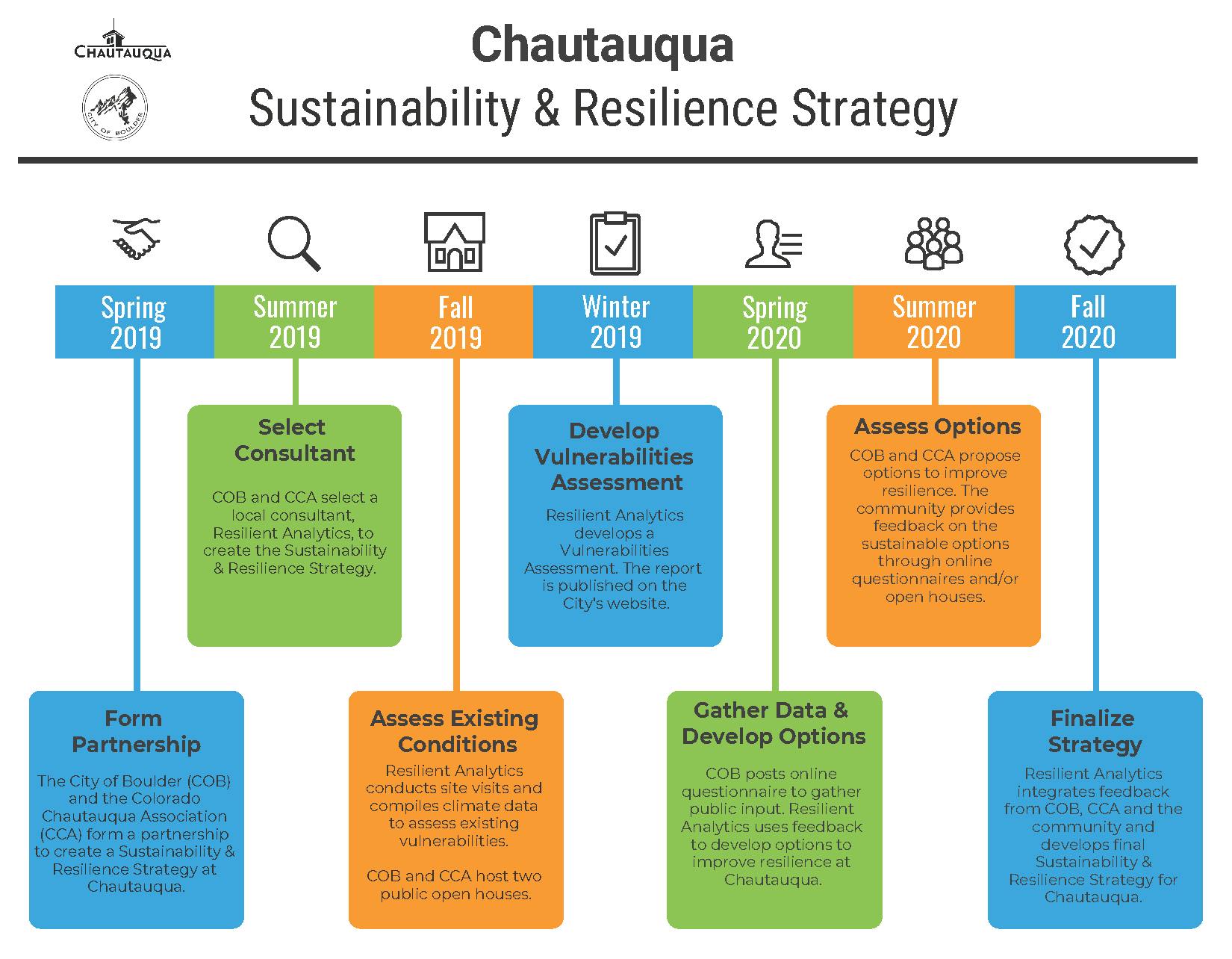Chautauqua Sustainability & Resilience Strategy
The Colorado Chautauqua National Historic Landmark District is one of Boulder's most beloved and significant landmarks. However, as Boulder is impacted by climate change, rising temperatures, greater intensity of precipitation events and a increased risk of wildfires, Chautauqua's historic and cultural resources are at serious risk.
To address these issues, the Colorado Chautauqua Association and the City of Boulder are developing a comprehensive Sustainability and Resilience Strategy with the goal of aligning priorities to plan for long-term sustainability, resilience and preservation at Chautauqua.
The Chautauqua Sustainability and Resilience Strategy explores four questions, in four steps:
- What are the vulnerabilities at Chautauqua? This step is complete. Read the Vulnerabilities Assessment to learn about climate change risks at Chautauqua and why it’s important to address them.
- How can we achieve sustainability, resilience and equity at the Chautauqua Historic District? We’re currently collecting input from community members to create options. Help us by completing the questionnaire below!
- How do we get there? After identifying what are the best steps to make Chautauqua sustainable and resilient into the future, the S&R Steering Committee will develop recommendations that will be shared with the community and Boulder’s City Council. This work will take place in during summer 2020.
- What happens when the S&R Strategy is complete? We’ll have a community-wide discussion of how the recommendations can be implemented in the context of Boulder’s Climate Mobilization Action Plan. We anticipate this will occur in the fall of 2020.
The map below marks the official boundaries of the Chautauqua Historic District.




